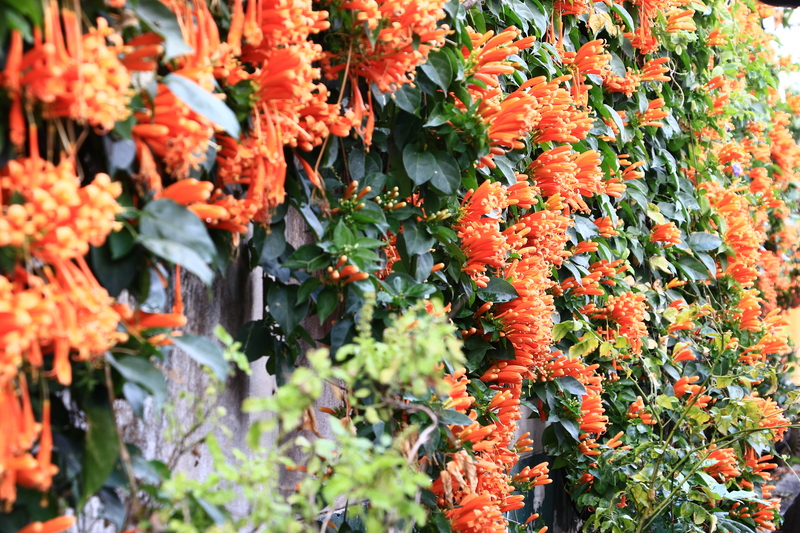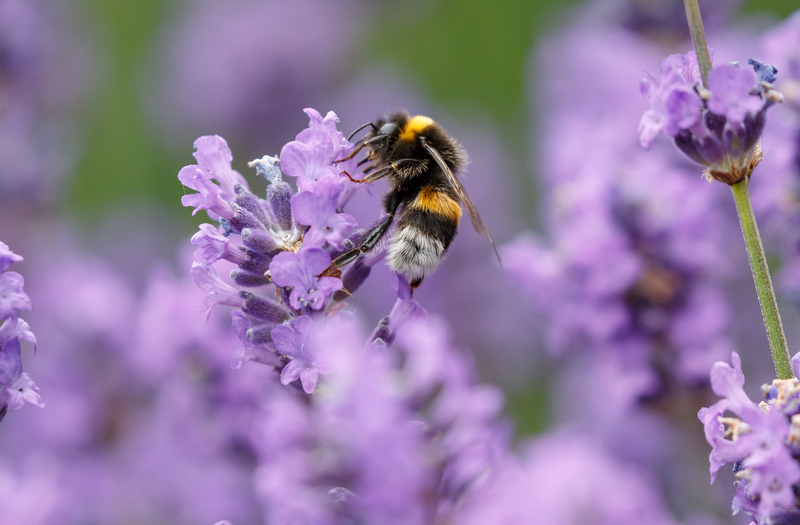Beginner's Guide: 9 Essential Gardening Tips to Kickstart Your Journey
Posted on 08/09/2025
Beginner's Guide: 9 Essential Gardening Tips to Kickstart Your Journey
Whether you have a sprawling backyard or a tiny apartment balcony, embarking on your gardening journey is both rewarding and therapeutic. Gardening can seem daunting for beginners, but with the right guidance and a little patience, anyone can cultivate a thriving green space. This comprehensive guide on essential gardening tips will help you lay solid foundations, avoid common pitfalls, and grow confidence along with your plants. Let's dig in!
Why Start a Garden? The Joy and Benefits of Gardening
There are countless reasons why millions of people worldwide are embracing home gardening. Not only does it provide fresh produce and beautiful blooms, but it also serves as an excellent form of exercise, offers mental relaxation, and enhances your outdoor living space. Gardening for beginners is an adventure in discovery, patience, and immense satisfaction. If you're eager to get your hands dirty, this beginner-focused gardening guide will ensure you start on fertile soil--both literally and figuratively!

1. Assess Your Gardening Space and Choose the Right Location
The first step for any new gardener is to analyze your available space. Whether you are working with garden beds, containers, or vertical planters, understanding your gardening environment is crucial.
- Check sunlight exposure at different times of the day.
- Observe the wind patterns and drainage in your area.
- Note the proximity to water sources for easy irrigation.
Good light and access to water are often the most critical elements in a successful starter garden. For the healthiest plants, most vegetables and flowers require at least 6-8 hours of sunlight daily. For shaded spots, consider shade-tolerant varieties, such as ferns or impatiens.
Container Gardening Tips for Beginners
If you lack garden beds, don't worry! Container gardening offers flexibility and is perfect for balconies, patios, or windowsills. Use pots with drainage holes and choose plants suitable for confined root systems, like herbs, lettuce, or compact blooms.
2. Know Your Soil: The Foundation of Every Thriving Garden
Healthy soil equals healthy plants. Before planting, it's vital to understand your soil type--be it clay, loam, or sand. You can buy simple soil testing kits to check pH and nutrient levels. Amending soil with organic material like compost improves texture, drainage, and fertility.
- Compost: Fortifies soil and boosts microbial activity.
- Mulch: Retains moisture and suppresses weeds.
- Manure: Provides slow-release nutrients for hungry plants.
Don't ignore the soil! Taking time to enrich and balance it pays off with vigorous, robust growth and higher resistance to pests and diseases.
3. Select the Right Plants for Beginners
Not all plants are created equal. Some require more attention, while others thrive with basic care. As a novice gardener, focus on varieties known for their resilience and minimal demands.
- Vegetables: Lettuce, radishes, green beans, and zucchini are easy and fast to grow.
- Herbs: Basil, parsley, chives, and mint adapt well to different environments.
- Flowers: Marigolds, sunflowers, and zinnias offer colorful blooms with little fuss.
Start small to build your confidence. As you grow more comfortable, you can experiment with a wider variety of plants and more complex arrangements.
4. Master Watering: Give Your Plants the Right Amount of Moisture
Watering may seem straightforward, but it's a cornerstone of successful gardening for beginners. Overwatering can drown roots, while under-watering stresses your plants. Here's how to do it right:
- Water early in the morning or late in the afternoon to minimize evaporation.
- Water the base of the plant, not the leaves, to reduce disease risk.
- Stick your finger into the soil--if it feels dry an inch down, it's time to water.
Larger plants and containers may require more frequent watering, especially during hot spells. Mulching helps the soil retain moisture, giving you more flexibility and less maintenance.
5. Understand the Importance of Plant Spacing and Arrangement
Overcrowded plants compete for light, water, and nutrients, which can stunt growth and encourage disease. Always read plant spacing recommendations on seed packets or labels. Proper spacing ensures:
- Better air circulation
- Decreased disease and pest issues
- Room for roots to expand and establish
Map out your garden or container ahead of time, allowing each plant species the space it needs to flourish.
6. Fertilizing: Nourishing for Optimal Growth
Just like humans, plants require a well-balanced diet to thrive. Fertilizers supplement soil nutrients and promote healthy, productive growth, especially in nutrient-poor soils.
- Organic fertilizers: Such as compost or fish emulsion, are gentle and eco-friendly.
- Synthetic fertilizers: Offer rapid results but require careful measurement to avoid burn.
Begin with organic options, applying them sparingly. Overfertilization can harm plants as much as too little nutrition. As you gain experience, adjust feeding schedules to meet your garden's specific needs and seasonal growth patterns.
7. Disease and Pest Management: Prevention is Better Than Cure
Effective gardening for beginners includes monitoring your garden regularly for signs of trouble. Early detection of pests or diseases makes management much simpler. Here are some preventive measures:
- Choose disease-resistant plant varieties where possible.
- Practice crop rotation to prevent soil-borne pathogens.
- Invigorate beneficial insects (ladybugs, lacewings) by growing their favorite plants.
- Remove diseased leaves promptly and discard them in the trash, not the compost.
Try natural remedies first, such as neem oil or insecticidal soap, before resorting to harsh chemicals. *Healthy plants are always the best defense against pests!*
8. Regular Maintenance and Pruning Techniques
Consistent care maintains a productive and beautiful garden. Pruning dead or yellowing foliage focuses the plant's energy on new growth. Regular harvesting of vegetables keeps plants productive. Other essential maintenance tasks include:
- Weeding frequently to reduce competition for resources.
- Tidying up spent blooms to extend flowering periods ("deadheading").
- Inspecting for pests and treating them early.
Allocate a few minutes daily or a couple of hours weekly for routine checks--this transforms garden chores into relaxing rituals.
9. Keep Learning: Adapt, Experiment, and Enjoy the Process
Every garden--and gardener--is unique. You might discover that certain techniques or plants work better in your environment. Don't be afraid to experiment and make mistakes. Each season brings new lessons and joys.
- Join local gardening clubs or online communities for sharing and advice.
- Read gardening books, watch tutorials, or subscribe to gardening blogs.
- Document your successes and failures in a garden journal for future reference.
Patience is the gardener's greatest virtue. Not every seed sprouts, and not all plants thrive in the first attempt, but each experience will grow your skills.
Bonus Gardening Tip: Sustainable and Eco-Friendly Gardening
As you establish your garden, consider sustainable gardening practices to protect nature's delicate balance:
- Collect rainwater for irrigation.
- Compost kitchen scraps to reduce waste.
- Plant native species to support local wildlife and pollinators.
Going green isn't just about plants--it's about responsible stewardship of your little patch of earth.

Frequently Asked Questions for Beginner Gardeners
What is the best time to plant a garden?
Most plants thrive when planted in the spring after the last frost, but many cool-weather crops (lettuce, peas) can be started earlier, and some perennials are best planted in fall. Always check your region's gardening calendar for optimal timing.
How can I start gardening with a limited budget?
Begin with inexpensive seeds, reuse containers, make your compost, and swap cuttings with friends. Gardening doesn't require expensive tools or accessories to yield fantastic results.
How do I avoid common beginner mistakes?
- Start small and expand gradually.
- Don't ignore soil preparation.
- Follow watering recommendations for each plant.
- Experiment and learn from each season.
Conclusion: Your Green Journey Starts Now!
Gardening is one of life's simplest and greatest pleasures. With these nine essential gardening tips for beginners, you're equipped to grow not just plants, but also confidence and curiosity. Remember: each seed you plant is a tiny act of hope. Nurture it, observe and learn, and soon you'll be rewarded with a flourishing, bountiful garden--no matter how small or humble your starting point. Happy gardening!
Latest Posts
Find balance and peace with Zen garden elements
Perfect Tools for Every Outdoor Gardening Experience
Top Tips for Orchid Enthusiasts
Beginner's Guide: 9 Essential Gardening Tips to Kickstart Your Journey

